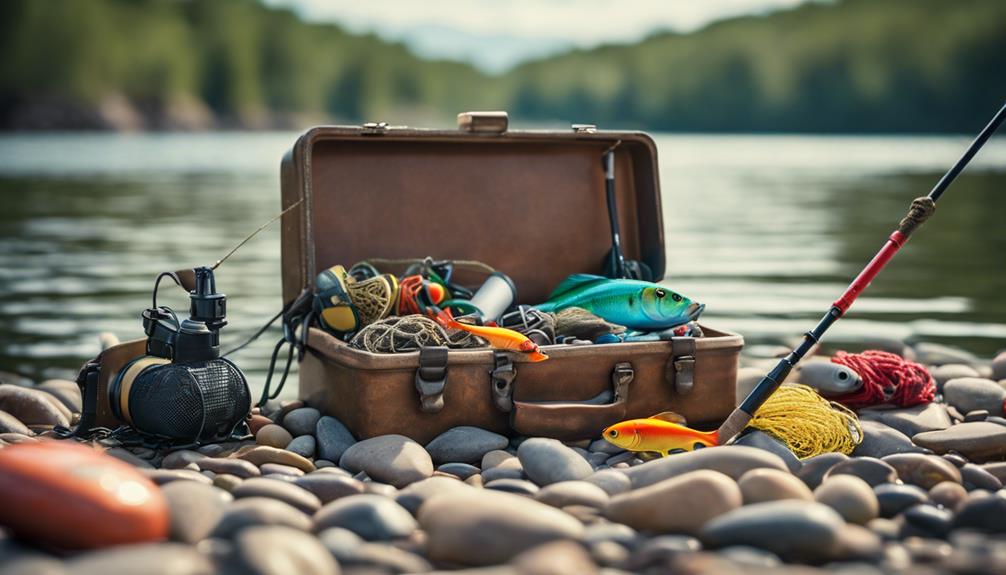Fishing is a beloved pastime for many, offering relaxation, adventure, and a chance to connect with nature. However, before you cast your line into the water, it’s essential to understand how to get a fishing license. This comprehensive guide will help you navigate the process of obtaining a fishing license and ensure you’re ready for your next fishing excursion.
Understanding the Importance of a Fishing License
Before diving into the details of how to get a fishing license, it’s crucial to understand why having one is important. A fishing license is not just a piece of paper; it’s a legal requirement in most places. It supports conservation efforts, ensuring that fish populations remain sustainable for future generations. By obtaining a license, you contribute to the management of aquatic ecosystems and help fund public programs aimed at preserving fish habitats. Furthermore, fishing without a license can result in hefty fines and penalties, making it essential to fish responsibly and legally.
Choosing the Right License Type for Your Needs
When asking, “how do I get a fishing license?” the first step is to determine which type of license you need. Each state or country may offer different types of licenses, including freshwater, saltwater, or combination licenses. Additionally, there are often variations for residents and non-residents, as well as different durations, such as annual, seasonal, or one-day licenses. Consider your fishing habits, the locations you plan to fish, and the species you wish to target. Understanding these factors will help you choose the right license that fits your fishing plans.
Where to Apply for a Fishing License
Now that you know what type of fishing license you need, the next question is, “how do I get a fishing license?” You can apply for a fishing license through various channels. Most states offer online applications through their wildlife or fish and game department websites, which is often the most convenient method. Alternatively, you can visit local bait shops, sporting goods stores, or government offices that issue fishing licenses. In some regions, you may also find kiosks in parks or recreational areas where you can purchase a license on-site.
Gathering the Necessary Information and Documents
To make the application process smooth and efficient, it’s important to gather the necessary information and documents ahead of time. Typically, you will need to provide personal details such as your name, address, date of birth, and in some cases, your Social Security number. Additionally, you may need to present a form of identification, such as a driver’s license or state ID. If you’re applying for a specific type of license, such as a senior citizen or disabled person’s license, be prepared to show proof of eligibility. Having all this information ready will streamline the process of getting your fishing license.
Understanding Fees Associated with Fishing Licenses
When considering how to get a fishing license, it’s important to be aware of the associated fees. The cost of a fishing license can vary widely depending on the type of license, the duration, and your residency status. For instance, non-resident licenses are typically more expensive than resident licenses. Additionally, some states may offer discounted rates for seniors, veterans, or youth. Be sure to check the fee structure on your local fish and game department’s website to avoid any surprises during the application process.
Staying Informed About Local Fishing Regulations
Obtaining a fishing license is just one aspect of being a responsible angler. It’s also essential to stay informed about local fishing regulations. These regulations can include specific fishing seasons, size and bag limits, and restricted areas. Understanding these rules not only helps you comply with the law but also promotes sustainable fishing practices. Many states provide resources and pamphlets detailing their fishing regulations, and some even offer mobile apps for easy access. Make it a habit to review these regulations before your fishing trips to ensure you are fishing legally and ethically.
What to Do After Receiving Your Fishing License
Once you have successfully obtained your fishing license, it’s time to prepare for your fishing adventure. Always carry your fishing license with you when you go fishing, as it may be required for inspection by wildlife or law enforcement officers. Familiarize yourself with the specific regulations associated with your license, including any special requirements for certain bodies of water. Additionally, consider joining local fishing communities or online forums to connect with fellow anglers who can share tips, advice, and information about the best fishing spots in your area.
Renewing and Maintaining Your Fishing License
Lastly, after you’ve learned how to get a fishing license, it’s important to know how to maintain it. Fishing licenses typically expire, so be aware of the renewal dates. Most states allow for easy online renewal, ensuring you can keep your license up to date without any hassle. Additionally, keep an eye out for any changes in fishing regulations or license requirements, as these can change from year to year. Staying informed will help you continue enjoying fishing while adhering to all legal requirements.
In conclusion, obtaining a fishing license is a vital step for any angler. By understanding the process, the different types of licenses available, and the regulations that come with them, you can ensure a smooth and enjoyable fishing experience. So the next time you wonder, “how do I get a fishing license?” remember this guide to help you navigate the process efficiently. Happy fishing!
